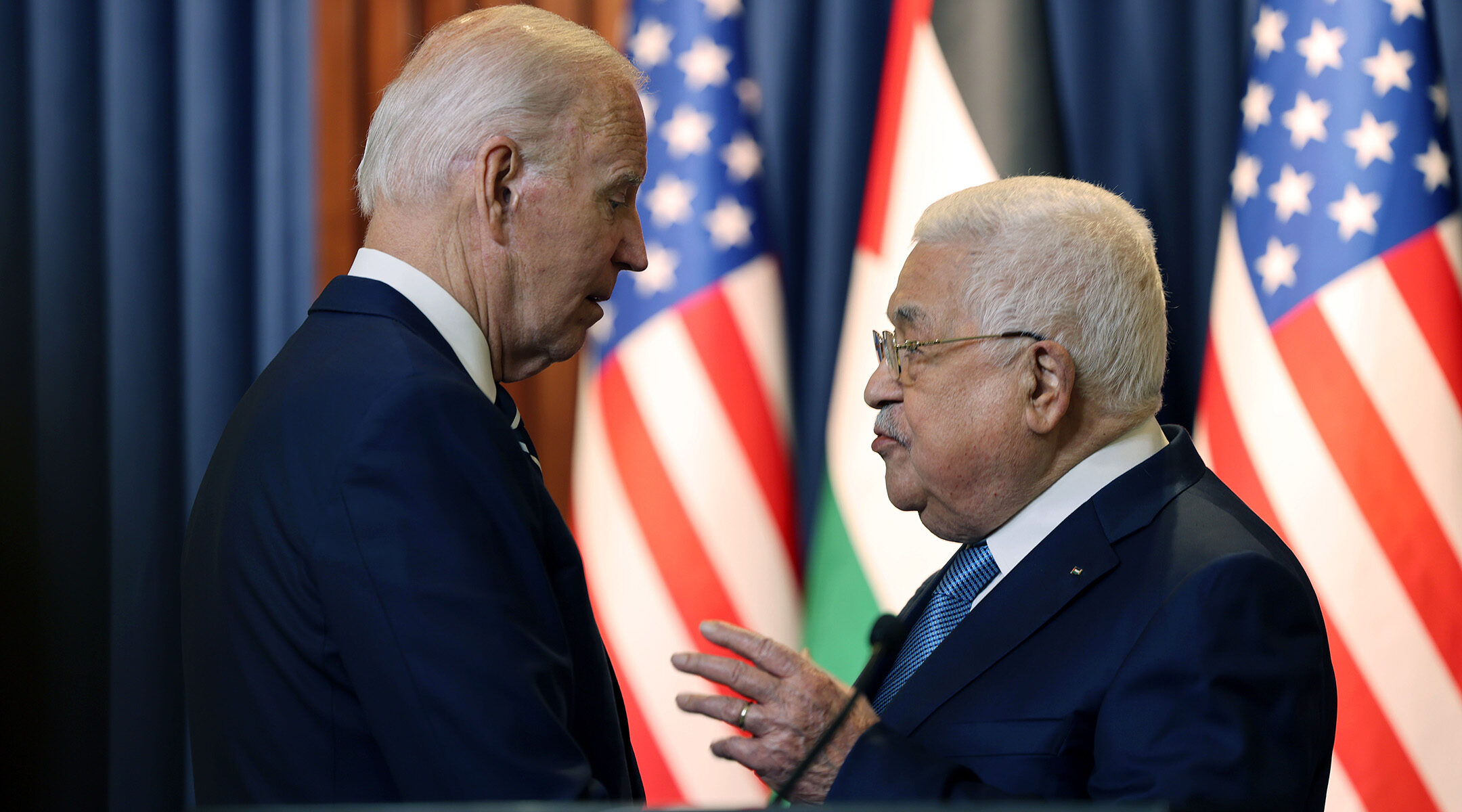(JTA) — After meeting with Palestinian Authority President Mahmoud Abbas, U.S. President Joe Biden conceded that “the ground is not ripe at this moment” to restart long-dormant peace negotiations between Israeli and Palestinian leaders.
“I know that the goal of the two-state [solution] seems so far away, while indignities like restrictions on movement and travel or the daily worry of your children’s safety are real and immediate,” the president said. “So even if the ground is not ripe at this moment to restart negotiations, the United States and my administration will not give up on trying to bring the Palestinians and the Israelis closer together.”
Biden made the remarks at a Palestinian hospital in East Jerusalem on Friday on the last leg of his first trip to Israel as president. He announced $316 million in new aid measures — including $200 million to the United Nations agency that works with Palestinian refugees and smaller amounts toward 4G internet construction in the West Bank and Gaza — in a move that contrasts sharply with the policy of his predecessor Donald Trump, who slashed most U.S. aid to the Palestinians.
But despite those moves and rhetoric not heard from a U.S. president in recent years — “Palestinians are hurting, you can just feel it” — Biden left his meeting with Abbas without having moved the needle on the Israeli-Palestinian conflict. High-level peace talks have not taken place since 2014, and a significant flank of Israeli politicians have moved away from supporting a two-state solution.
“Israel must remain an independent, democratic Jewish state,” Biden said on Friday. “The best way to achieve that remains a two-state solution, for two people, both of whom have deep and ancient roots in this land, living side by side in peace and security.”
Biden also called for “a full and transparent accounting” of the death of Shireen Abu Akleh, the Palestinian journalist killed during an Israeli raid in the West Bank city of Jenin. The Biden White House’s findings from a joint investigation echo those from probes by the Associated Press, The Washington Post and The New York Times, which each found that Akleh was likely killed by an Israeli bullet. Israel says the cause of her death cannot be determined from available evidence.
JTA has documented Jewish history in real-time for over a century. Keep our journalism strong by joining us in supporting independent, award-winning reporting.






